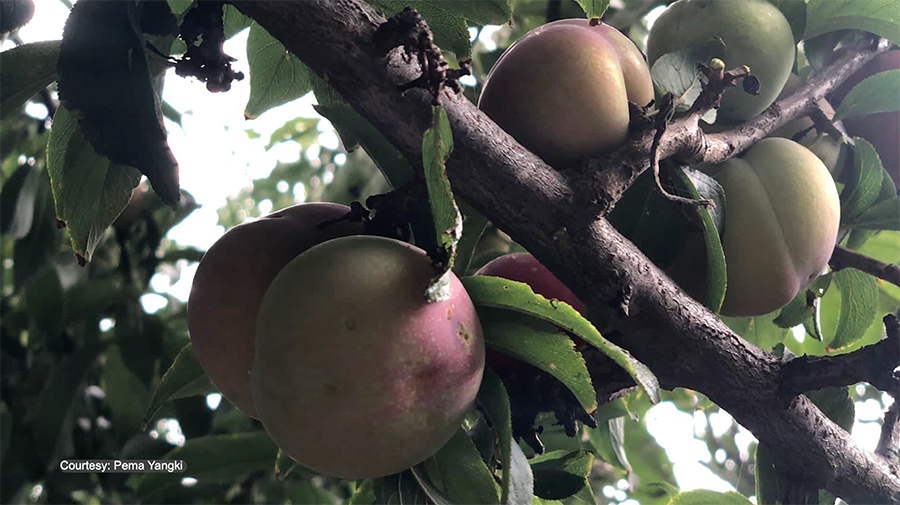 The Bhutan Ecological Society, BES, has planted around 200,000 trees across 11 districts as part of its Mountains to Mangroves initiative. The initiative, launched last year, aims to plant over 10 million trees by 2030.
The Bhutan Ecological Society, BES, has planted around 200,000 trees across 11 districts as part of its Mountains to Mangroves initiative. The initiative, launched last year, aims to plant over 10 million trees by 2030.
Farmers in around 11 districts have planted 72,000 fruit trees and over 120,000 high-value timber species through the Mountains to Mangroves initiative.
To encourage participation from local community, the BES has been offering free seedlings to farmers based on individual requests.
 According to the officials, farmers in the temperate regions primarily seek fruit trees such as apple, persimmon, walnut, kiwi, and peach while the common requests of farmers in subtropical and warmer regions include areca nut, coffee, and orange trees.
According to the officials, farmers in the temperate regions primarily seek fruit trees such as apple, persimmon, walnut, kiwi, and peach while the common requests of farmers in subtropical and warmer regions include areca nut, coffee, and orange trees.
So far, the BES has consulted around 500 participants, including Dzongkhag Thrizins, Gups, Agriculture Officers, and Livestock Officers from 17 districts.
 The final consultation session will be held in Bumthang on Tuesday, covering Bumthang, Zhemgang, and Trongsa districts.
The final consultation session will be held in Bumthang on Tuesday, covering Bumthang, Zhemgang, and Trongsa districts.
Norbu Wangdi, Director of Forest and Water at Bhutan Ecological Society said “We always have to depend on partnerships of the rural communities. So, I think they can actively take part in the plantation efforts, particularly for the degraded agriculture fields, dry lands, and fellow lands. They can request seedlings and then take part in restoring their degraded ecosystems within their communities.”
The initiative is seen as a key step in combating climate change and restoring biodiversity.
He said “The main objective is to restore the degraded areas within Bhutan. The second objective is to revitalize the degraded watersheds so that we have a continued eco system services, we keep deriving from this natural ecosystem. The third important objective is to revitalize the fellow land and then provide economic opportunities for our rural farmers.”
BES aims to plant an additional two million trees this year.
Conservation International contributed 240,000 US dollars so far for the initiative. The American nonprofit environmental organization has pledged 2.3 million US dollars for the entire project. The Bhutan Foundation is also playing a significant role in the project.
While the BES does not have any plans yet to assist farmers in selling their produce, officials said they are actively exploring ways to support them in the future.
Namgay Wangdi
Edited by Phub Gyem










